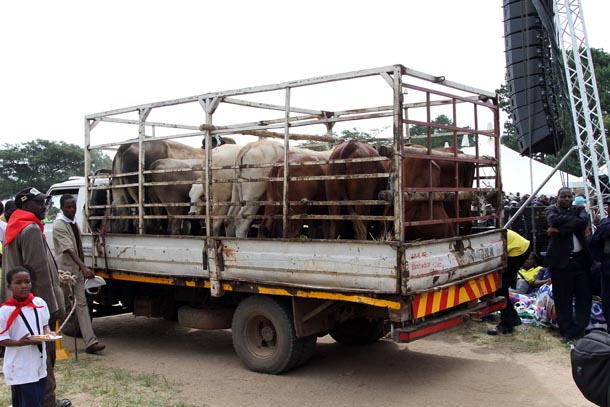
THE Zimbabwe Abattoir and Pig Producers’ Association yesterday called on rural district councils to reduce their 10,5% livestock purchase levies, saying the high levies further eroded the farmers’ profits.
BY VENERANDA LANGA
The association’s chairman, Godfrey Chanetsa, also told the Parliamentary Portfolio Committee on Agriculture that the high levies fuelled illegal movement of livestock.
“The purposes of levies is to sustain the provision of services. However, if levies are too high, and in some instances amount to 10,5% of the purchase value of a beast, perverse outcomes ensue, such as the deliberate evasion of formal cattle sales which encourages illegal movements and counteracts disease control,” Chanetsa said.
He denied claims that abattoir operators were shortchanging farmers in drought-stricken communal areas where they bought cattle at a song, sometimes at prices as low as $50 for a beast. The country’s cattle herd currently stands at 4,5 million, with 95% of them owned by communal farmers.
Chanetsa called on government to come up with plans to allow for utilisation of unused grazing land that belongs to individuals to save cattle from drought-stricken regions.
“About 20 000 cattle have died due to drought and the number is expected to rise. We are trying to convince people with dying cattle to de-stock, but we have a situation where cattle are dying while people watch because culturally our people feel naked without their beasts,” he said.
- Chamisa under fire over US$120K donation
- Mavhunga puts DeMbare into Chibuku quarterfinals
- Pension funds bet on Cabora Bassa oilfields
- Councils defy govt fire tender directive
Keep Reading
Solomon Zawe, chairman of the Livestock, Meat and Advisory Council, said 65% to 75% of chickens in the country were kept by smallholder farmers.
“In 2015, we produced 74 million day-old chicks and 70% went to smallholder farmers. The biggest threat to the chicken industry are illegal imports through our porous borders,” he said.
Zawe dismissed reports that meat from quail birds had medicinal components that could help in the cure of Aids and high blood pressure.
“It is just a marketing ploy by the producers to ensure that bird takes over from the road runner,” Zawe said.












